第72章 THE SKETCH BOOK(6)
The costume, to be sure, did not bear testimony to deep research,and there was an evident eye to the picturesque, natural to a younggallant in the presence of his mistress. The fair Julia hung on hisarm in a pretty rustic dress, as "Maid Marian." The rest of thetrain had been metamorphosed in various ways; the girls trussed upin the finery of the ancient belles of the Bracebridge line, and thestriplings bewhiskered with burnt cork, and gravely clad in broadskirts, hanging sleeves, and full-bottomed wigs, to represent thecharacter of Roast Beef, Plum Pudding, and other worthies celebratedin ancient maskings. The whole was under the control of the Oxonian,in the appropriate character of Misrule; and I observed that heexercised rather a mischievous sway with his wand over the smallerpersonages of the pageant.
The irruption of this motley crew, with beat of drum, according toancient custom, was the consummation of uproar and merriment. MasterSimon covered himself with glory by the stateliness with which, asAncient Christmas, he walked a minuet with the peerless, thoughgiggling, Dame Mince Pie. It was followed by a dance of all thecharacters, which from its medley of costumes, seemed as though theold family portraits had skipped down from their frames to join in thesport. Different centuries were figuring at cross hands and rightand left; the dark ages were cutting pirouettes and rigadoons; and thedays of Queen Bess jigging merrily down the middle, through a lineof succeeding generations.
The worthy squire contemplated these fantastic sports, and thisresurrection of his old wardrobe, with the simple relish of childishdelight. He stood chuckling and rubbing his hands, and scarcelyhearing a word the parson said, notwithstanding that the latter wasdiscoursing most authentically on the ancient and stately dance of thePavon, or peacock, from which he conceived the minuet to bederived.* For my part, I was in a continual excitement from the variedscenes of whim and innocent gayety passing before me. It was inspiringto see wild-eyed frolic and warm-hearted hospitality breaking out fromamong the chills and looms of winter, and old age throwing off hisapathy, and catching once more the freshness of youthful enjoyment.
I felt also an interest in the scene, from the consideration thatthese fleeting customs were passing fast into oblivion, and thatthis was, perhaps, the only family in England in which the whole ofthem was still punctiliously observed. There was a quaintness, too,mingled with all this revelry, that gave it a peculiar zest: it wassuited to the time and place; and as the old manor-house almost reeledwith mirth and wassail, it seemed echoing back the joviality of longdeparted years.*(2)* Sir John Hawkins, speaking of the dance called the Pavon, frompavo, a peacock, says, "It is a grave and majestic dance; the methodof dancing it anciently was by gentlemen dressed with caps and swords,by those of the long robe in their gowns, by the peers in theirmantles, and by the ladies in gowns with long trains, the motionwhereof, in dancing, resembled that of a peacock."- History of Music.
*(2) At the time of the first publication of this paper, the pictureof an old-fashioned Christmas in the country was pronounced by some asout of date. The author had afterwards an opportunity of witnessingalmost all the customs above described, existing in unexpected vigorin the skirts of Derbyshire and Yorkshire, where he passed theChristmas holidays, The reader will find some notice of them in theauthor's account of his sojourn at Newstead Abbey.
But enough of Christmas and its gambols; it is time for me topause in this garrulity. Methinks I hear the questions asked by mygraver readers, "To what purpose is all this- how is the world to bemade wiser by this talk?" Alas! is there not wisdom enough extantfor the instruction of the world? And if not, are there notthousands of abler pens laboring for its improvement?- It is so muchpleasanter to please than to instruct- to play the companion ratherthan the preceptor.
What, after all, is the mite of wisdom that I could throw into themass of knowledge; or how am I sure that my sagest deductions may besafe guides for the opinions of others? But in writing to amuse, ifI fail, the only evil is in my own disappointment. If, however, Ican by any lucky chance, in these days of evil, rub out one wrinklefrom the brow of care, or beguile the heavy heart of one moment ofsorrow; if I can now and then penetrate through the gathering filmof misanthropy, prompt a benevolent view of human nature, and makemy reader more in good humor with his fellow beings and himself,surely, surely, I shall not then have written entirely in vain.
THE END
.
1819-20